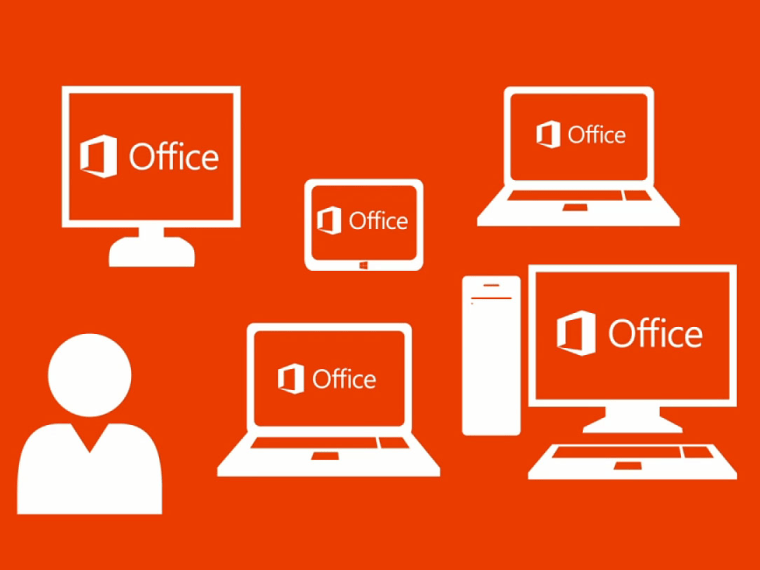Even after several months, I don't know what to make of Windows 8. And Microsoft's tablet initiative feels like it's on the rocks. Still, when I look at SkyDrive and Outlook.com — which will replace Hotmail completely by this summer — I see hope for the company. All that's missing is Office for iPad ... and iPhone ... and Android.
Excellent webmail and cloud storage services could help Microsoft grab users from the competition. But Google is doing a great job on both of those fronts, too, and Amazon, Apple and others play in that same space. The big gun, the thing that Microsoft still does better than everybody else, is the office suite. Microsoft's recent launch of the subscription-based any-device Office 365 is testament to the fact that the company — or at least that incredibly successful division — understands the benefit of not being locked to one platform. So what are the folks in Redmond waiting for?
Here's how the pieces fit together: Webmail is the most popular Web service there is, and it's a good gateway to other services. (Just ask Google, which makes a regular practice out of nagging Gmailers to get on Google+.) SkyDrive is a great add-on service because it serves as a spillover for Outlook.com mail: If you have a lot of attachments, or files that are really big, Outlook asks you to throw them into a shareable SkyDrive folder instead. And Office 2013 already connects to SkyDrive to save stuff in the cloud.
Outlook and SkyDrive are cheerfully platform agnostic: The Outlook team released an Android mail app last fall, and optimized its compatibility with iOS's Mail. Meanwhile, SkyDrive syncs beautifully on Macs and iPhones, and lots of other devices too. Success in webmail and cloud storage leaves a lot of options open for Microsoft, and cross compatibility means decreasing the dependence on Windows. No matter how much Microsoft wants to save Windows, its other businesses need to acknowledge the fact that operating systems don't matter anymore.
Look, your car may look different than mine, and have more cupholders, but we can both drive on the same roads. Applications (software written for specific computers) gave way to the Internet, where software lived somewhere out in the ether. We are now in a third age where apps, optimized for our devices, bring services from the Internet. I don't care if you love Windows 8 or hate it, ditto for OS X, iOS, Android or even Chrome OS (not that you've necessarily heard of Google's browser-based desktop OS) — they are but vehicles.
I know what you are thinking: Apple and Google have been using their recent success to push music and video, storage, photo management, even social networking, all in one "ecosystem." While it makes sense on paper, people don't buy books from Apple, they buy 'em from Amazon; they don't stream music and movies from Google, they get it from Spotify and Netflix. Apple's Ping social network didn't exactly have the momentum of Google+, so it implanted both Twitter and Facebook directly into all of its operating systems.
Lately I have looked around for services outside of "ecosystems" precisely because they won't tie me down inconveniently to one family of like-branded products. Even if you love Apple (or Samsung) products so much to only buy them, you still have to get every single one of your family members to do the same in order to start enjoying the benefits of some services such as messaging, photo sharing, etc.
So what about office software? We have seen serviceable iWork apps from Apple, but they won't run on Android. We've seen some shabby free office suites that will. Google Docs, which I use all the time for collaboration, are lightweight and platform indifferent, but they lack the power and versatility of classic Office. Despite the usual design and workflow criticism, we can agree that nobody does the whole package better than Microsoft.
What we want — and I'm pretty sure I really am speaking for most of the world here — is Microsoft's suite on whatever device we happen to be using.
So how about it, Redmond? Office for the iPad, this year? Seriously. One hundred million iPad users can't be totally wrong. SkyDrive should be integrated for storing documents, and an update for OS X should provide SkyDrive access. Meanwhile, an Outlook.com mail account should be a (free) requirement to sync these services.
So then, five years from now, when people are laughing about that whole Windows 8 thing, at least the formerly all-powerful software maker will continue to make billions in profit from its Office suite, which would remain a must-have ubiquitous service for paying customers anywhere ... on any device. Ya dig?
Wilson Rothman is the Technology & Science editor at NBC News Digital. Catch up with him on Twitter at @wjrothman, and join our conversation on Facebook.
